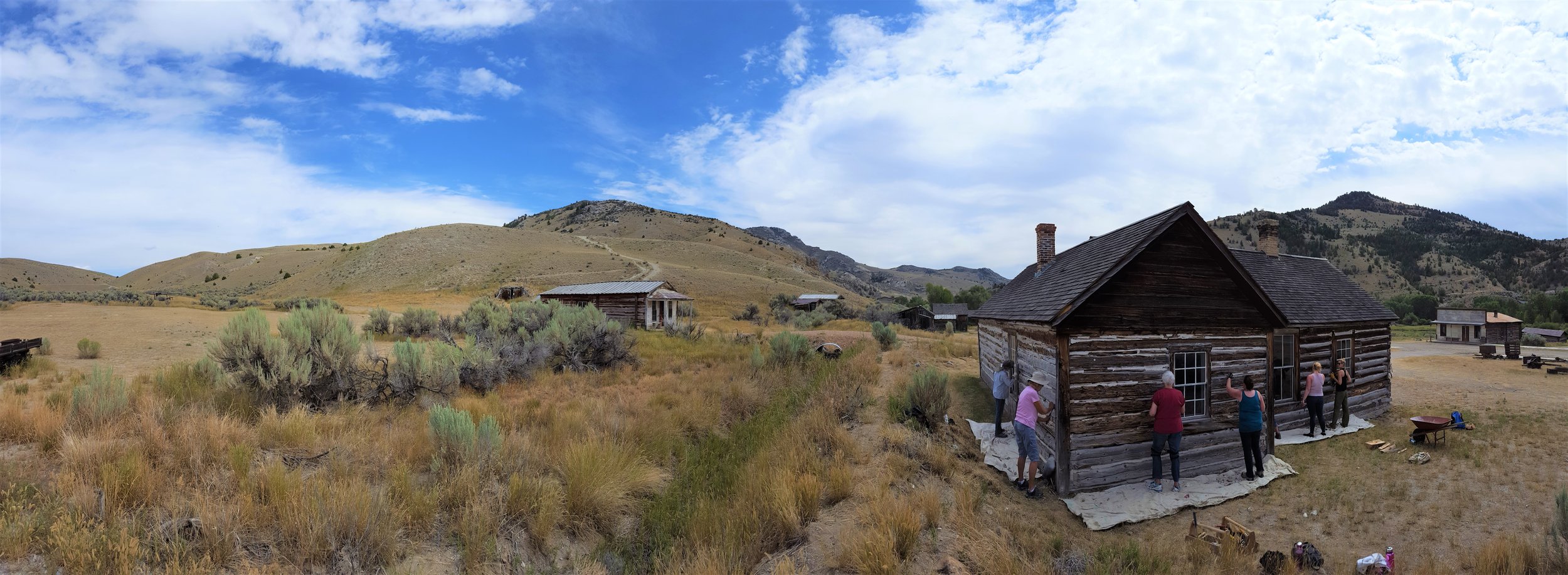
GRANT GUIDELINES
Information on how we can help you preserve Montana History
We are proud to partner with non-profit and tax-exempt organizations throughout the Treasure State to realize projects that bring history back to life. Read through our guidelines below to see if your project is a good fit for a Foundation for Montana History grant.
If you have questions please contact our Grants Manager.
Projects will receive preference that:
Address a structure, collection, or community that is endangered or threatened
Represent cultural or geographic diversity
Provide a direct, rather than a remote, benefit to the local community
Demonstrate financial support from the community
Show the project will continue after the funding period is complete
Will accomplish the work according to professional and historically accurate standards
Demonstrate a public benefit and/or provide public accessibility
We Do Not Fund:
Grants to individuals, including for dissertation research or student projects
General operations such as rents, utilities, or routine maintenance costs
Indirect costs, overhead, and/or facilities and administrative fees
Speakers, lectures, re-enactments, or other public presentations
Travel or entertainment
Equipment such as digital scanners, cameras, etc.
Sponsorships, including auctions, dinners, tickets, advertising, or fundraising
Organizations that, in policy or practice, discriminate against race, ethnic origin, sex, creed, or religion
Projects with the purpose to satisfy, fund, or retire loans, debts, or other operational deficits from previous projects or past operations
Sectarian or religious organizations seeking funds solely for religious purposes
Political action or legislative advocacy
Regular staff salaries
Grant Requirements:
One application per organization will be accepted in a given funding year, regardless of category (see specific criteria for each grant category).
Proposals are invited for projects that will make significant contributions to the preservation and interpretation of Montana's history.
The funding period is from May to June of the following year. Projects not completed within the funding period may be required to return all or a portion of the grant.
Applicants must be either a non-profit tax-exempt organization (IRS designation) or an exempt governmental unit.
Organizations with an open Foundation grant are not eligible to apply.
Requests for personnel costs must be for temporary, seasonal, or student/intern staff wages only.
Project budgets must include a 1:3 match (25% applicant, 75% The Foundation). Volunteer time may be used in this match and should be calculated at $25/hour.
Successful applicants must track all match, in-kind, and cash that is committed to the project as described below. Donated materials and/or volunteer services can count towards the match, along with the actual cash match.
